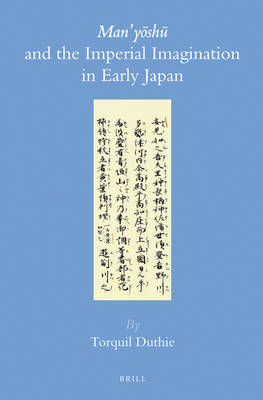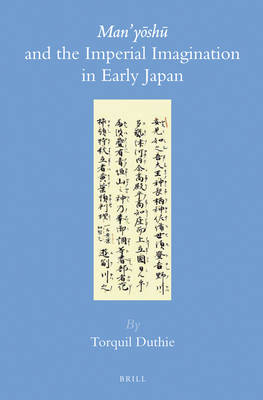
- Afhalen na 1 uur in een winkel met voorraad
- Gratis thuislevering in België vanaf € 30
- Ruim aanbod met 7 miljoen producten
- Afhalen na 1 uur in een winkel met voorraad
- Gratis thuislevering in België vanaf € 30
- Ruim aanbod met 7 miljoen producten
Zoeken
Omschrijving
In Man'yōshū and the Imperial Imagination in Early Japan, Torquil Duthie examines the literary representation of the late seventh-century Yamato court as a realm of "all under heaven." Through close readings of the early volumes of the poetic anthology Man'yōshū (c. eighth century) and the last volumes of the official history Nihon shoki (c. 720), Duthie shows how competing political interests and different styles of representation produced not a unified ideology, but rather a "bundle" of disparate imperial imaginaries collected around the figure of the imperial sovereign. Central to this process was the creation of a tradition of vernacular poetry in which Yamato courtiers could participate and recognize themselves as the cultured officials of the new imperial realm.
Specificaties
Betrokkenen
- Auteur(s):
- Uitgeverij:
Inhoud
- Aantal bladzijden:
- 464
- Taal:
- Engels
- Reeks:
- Reeksnummer:
- nr. 45
Eigenschappen
- Productcode (EAN):
- 9789004251717
- Verschijningsdatum:
- 9/01/2014
- Uitvoering:
- Hardcover
- Formaat:
- Genaaid
- Afmetingen:
- 163 mm x 241 mm
- Gewicht:
- 839 g

Alleen bij Standaard Boekhandel
+ 204 punten op je klantenkaart van Standaard Boekhandel
Beoordelingen
We publiceren alleen reviews die voldoen aan de voorwaarden voor reviews. Bekijk onze voorwaarden voor reviews.








